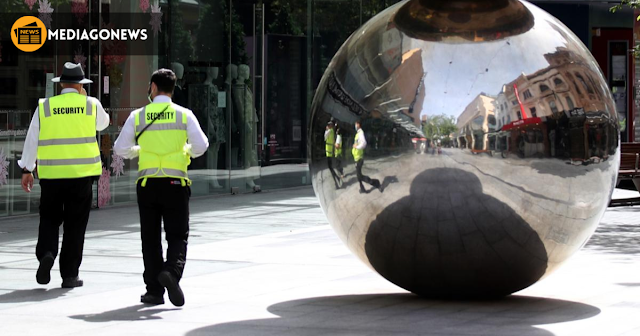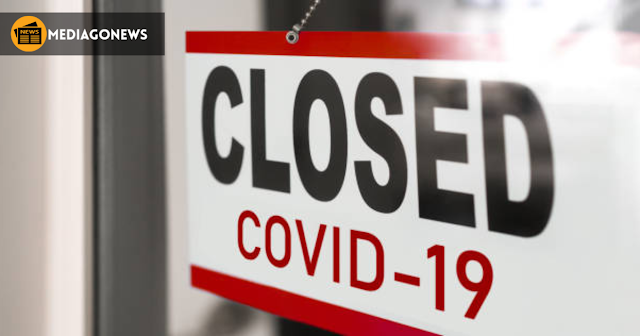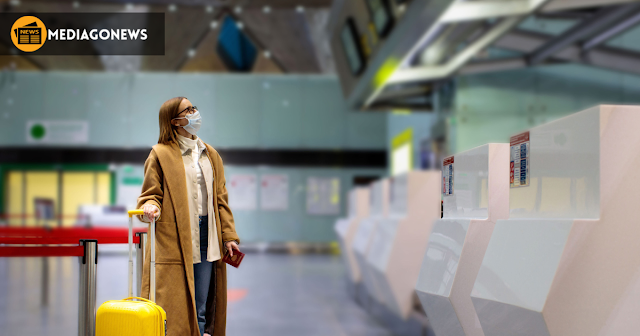Does France still have Covid restrictions This is a question that has been on many people's minds since the pandemic began. As the world has changed dramatically since the start of the coronavirus crisis, so too have the restrictions in France. In this blog post we'll look at what's still in place and what's changed in terms of Covid restrictions in France. We'll discuss the current situation the restrictions that remain in place and what people can expect moving forward.
Covid Restrictions in France What's Still in Place and what's Changed
Children under the age of 11 are exempt from this rule, as well as those with certain medical conditions or disabilities which make wearing a face covering difficult or impossible.
Other measures in place to help reduce the spread of Covid-19 include limits on gatherings and social distancing. Gatherings of more than six people are prohibited, and people are encouraged to keep two metres apart where possible. In addition, many establishments such as restaurants, bars and museums have reduced their capacity to ensure physical distancing.
The French government has implemented these restrictions in order to help contain the spread of Covid-19 and keep citizens safe. It is important to abide by the guidelines and take the necessary precautions to help protect yourself and those around you.
Gatherings of More Than 10 People Are Not Allowed
In France the government has instituted a number of measures to help prevent the spread of Covid-19. One of the most significant of these is the ban on gatherings of more than 10 people.
This ban applies to both indoor and outdoor events and was put in place as part of the country's national lockdown in October 2020. As a result, events such as concerts, sporting events, and festivals are not allowed. Bars, restaurants and cafes must also adhere to the rule, with no more than 10 customers allowed at any one time.
Despite the restrictions some social activities are still permitted. Religious services can take place with a maximum of 30 people allowed to attend, and schools are allowed to remain open with up to 20 students in each classroom. Cinemas and theatres are also allowed to open with limited capacity.
Overall the aim of these restrictions is to help limit social contact and thus reduce the risk of transmission of Covid-19. Although it is still possible for French citizens to enjoy certain activities and socialize in certain ways, it is important that they observe the rules and regulations set out by the government.
Some Businesses are Still Closed
As of the beginning of April 2021 some businesses are still closed in France due to Covid restrictions. Restaurants, bars and cafes are still closed for dine-in service and non essential shops and businesses are limited to curbside pickup or delivery. While some museums and other cultural sites have reopened large gathering places such as cinemas theaters and concert halls remain closed.
In terms of travel restrictions people from outside the European Union Schengen Area and United Kingdom are currently banned from entering the country. For people inside France, the government has implemented a nationwide nighttime curfew which restricts movement between 9pm and 6am, with exceptions only made for essential workers and medical emergencies.
These restrictions are expected to remain in place until May 19th 2021, when the government will decide whether to lift them or extend them further. In the meantime, it's important to stay informed about the latest guidelines in order to remain compliant.
Schools Are Open But There Are Strict Guidelines in Place
The French government has taken steps to ensure that schools remain open for the 2020-2021 school year despite the ongoing Covid-19 pandemic.
In order to mitigate the spread of the virus in educational settings the French government has implemented a number of guidelines and restrictions in both primary and secondary schools.
The most important restriction is that face masks are mandatory for everyone over the age of 11 while on school grounds. Students must also stay 1 meter apart from one another during class and breaks, and shared materials must be regularly disinfected. Schools must also keep track of any cases of Covid-19 among their students, and those who test positive or show symptoms must be isolated and their contact tracing done quickly.
Other measures include regular hand washing frequent temperature checks, and extra precautions when students use bathrooms. Additionally students will have shorter classes, which will be staggered to avoid too many people in the corridors at once. Schools may also reduce the number of days they are open per week or alternate between weeks of physical and virtual classes in order to reduce potential exposure.
The French government is also providing schools with additional funding to help them cope with the additional costs of safety measures such as masks sanitizers and other necessary supplies.
By taking these measures, the French government is committed to keeping schools open while maintaining a safe environment for its students and staff.
Travel is Restricted
Travel to and from France is currently restricted due to the ongoing Covid-19 pandemic. For those who do wish to travel there are a few important guidelines that need to be followed.
Non-essential travel to France is not allowed. This includes travel for tourism and leisure purposes. Essential travel however is permitted and is subject to certain restrictions.
The French government has set out a list of reasons why someone might qualify for essential travel, including traveling for work purposes, medical needs, family reunification, and legal obligations. If you do qualify for essential travel, you must have proof of a negative COVID-19 test taken within 72 hours before your departure and complete an online health form upon arrival in France.
For travelers arriving in France from the United Kingdom, Ireland, or any non-EU/EEA countries, they must also provide proof of their residence in France or an entry permit. There are also other quarantine requirements that may be imposed depending on the traveler’s country of origin.
Those traveling for essential reasons must also follow the current guidelines for the prevention of Covid-19. This includes wearing face masks in public areas and social distancing wherever possible.
It's important to keep in mind that these regulations may change at any time as the situation continues to evolve, so it's always best to check with the relevant authorities before traveling.







No comments:
Post a Comment